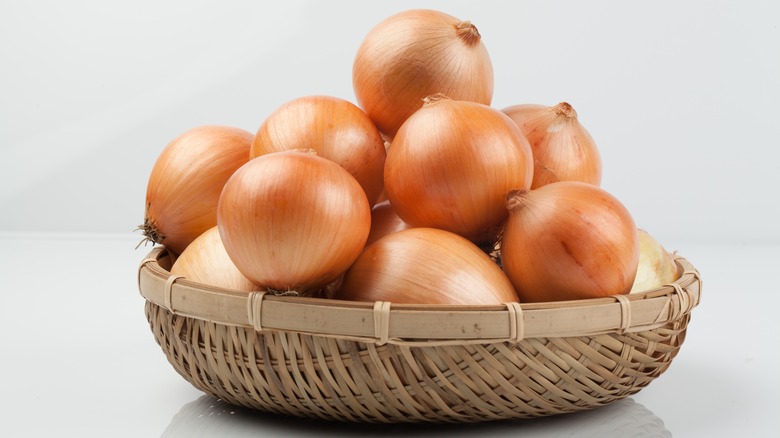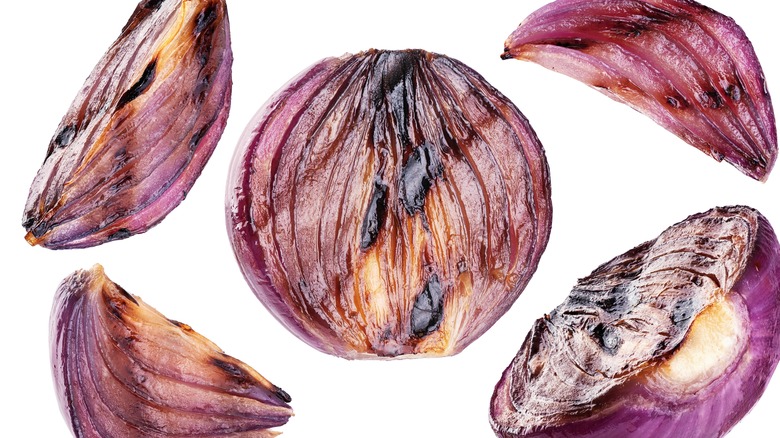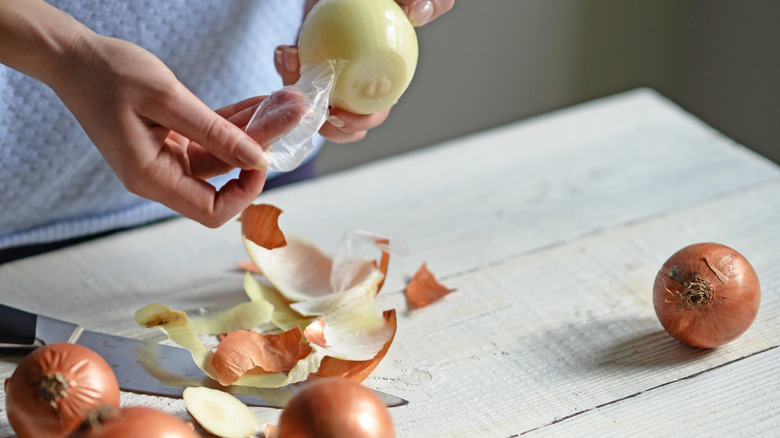Bobby Flay's Onion Grilling Tip Couldn't Be Easier
Onions are a great way to add acidic, bright flavor to plenty of dishes. But when they're grilled, that pungency gets toned down, meaning they're milder, softer, and easier to eat. The best grilled onions can stand alone as a side or be the perfect add-on to a juicy steak or burger. But if you've ever grilled them yourself, you probably know that keeping onions together on the grill is not as easy as it seems. That's where the onion skin comes in.
Next time you slice onions for grilling, follow Bobby Flay's tip: Keep the onion skin on. While you won't want to eat the skin, it's a great way to help the onion stay intact on the grill. Then, just remove the skin once the onions are grilled and cooked. The best part? To avoid waste, you can do plenty of things with that onion skin rather than throw it in the trash.
Leave the onion skin on when grilling
In general, it's not advised to eat onion skins; they don't taste good and can pose a choking hazard because they're difficult to adequately chew. But in terms of keeping onions intact on the grill, they come in handy. The skin essentially acts as a case to hold the different layers of the onion together while on the grill, so celebrity chef Bobby Flay relies on it when he's grilling onions and wants to keep them intact. When slicing the onion for grilling, slice it widthwise as if you were slicing to make onion rings. This keeps the skin in a circle and prevents it from breaking, which helps it stay on more sturdily while the onions cook. Keeping the onions together while grilling also makes them easier to remove from the grill.
Depending on when the onion was harvested, onion skins or peels will have different thicknesses. Onions harvested in the spring and summer will have thinner and more delicate skin so that it might fall off easier; if you try this with fall or winter onions, the skin is thicker, so it might stay on the onion better while grilling. The difference is that those fall and winter onions remain underground for several weeks longer than those harvested in spring and summer, which helps them get denser skin.
Don't throw those onion skins away
Although they're not the best for eating whole, you should save those onion peels. They're a great ingredient to add to vegetable stock and infuse it with a ton of flavor. In addition to stock, onion skins can also be used to make onion powder. Rinse them, then let them completely dry. The dried skins can be ground up and used as a homemade seasoning.
Onion skins are loaded with vitamins, flavonoids, and antioxidants. Specifically, they're a strong source of vitamins A, C, and E, which can help with eyesight and immunity, among other things. When the onion skins are cooked into the vegetable stock, those nutrients infuse into the stock's water, which makes it an easy way to reap those benefits. Veggie stock is great for soups or cooking pasta, while onion powder can be added to pizza, sandwiches, and dressings for a little extra kick.


